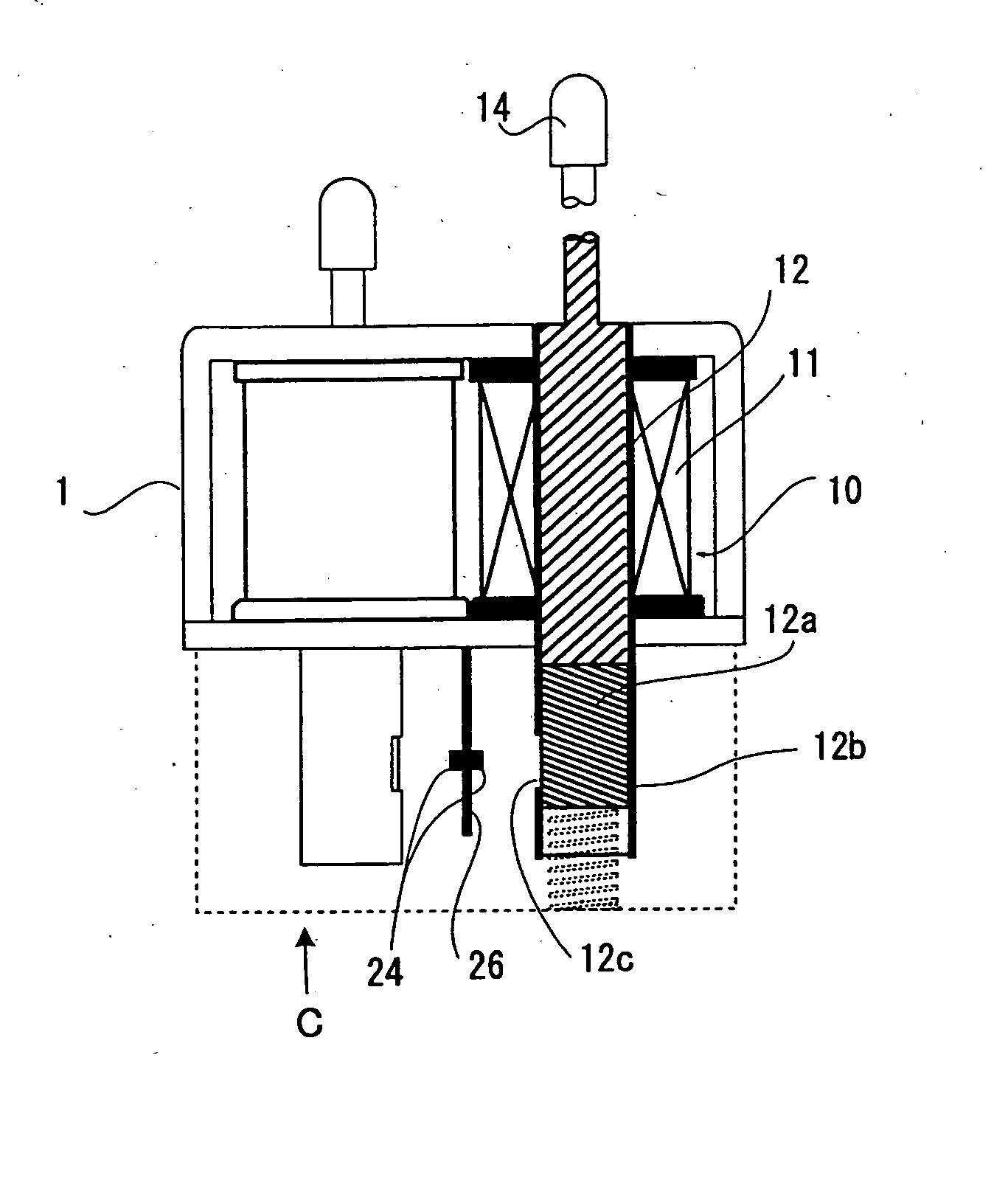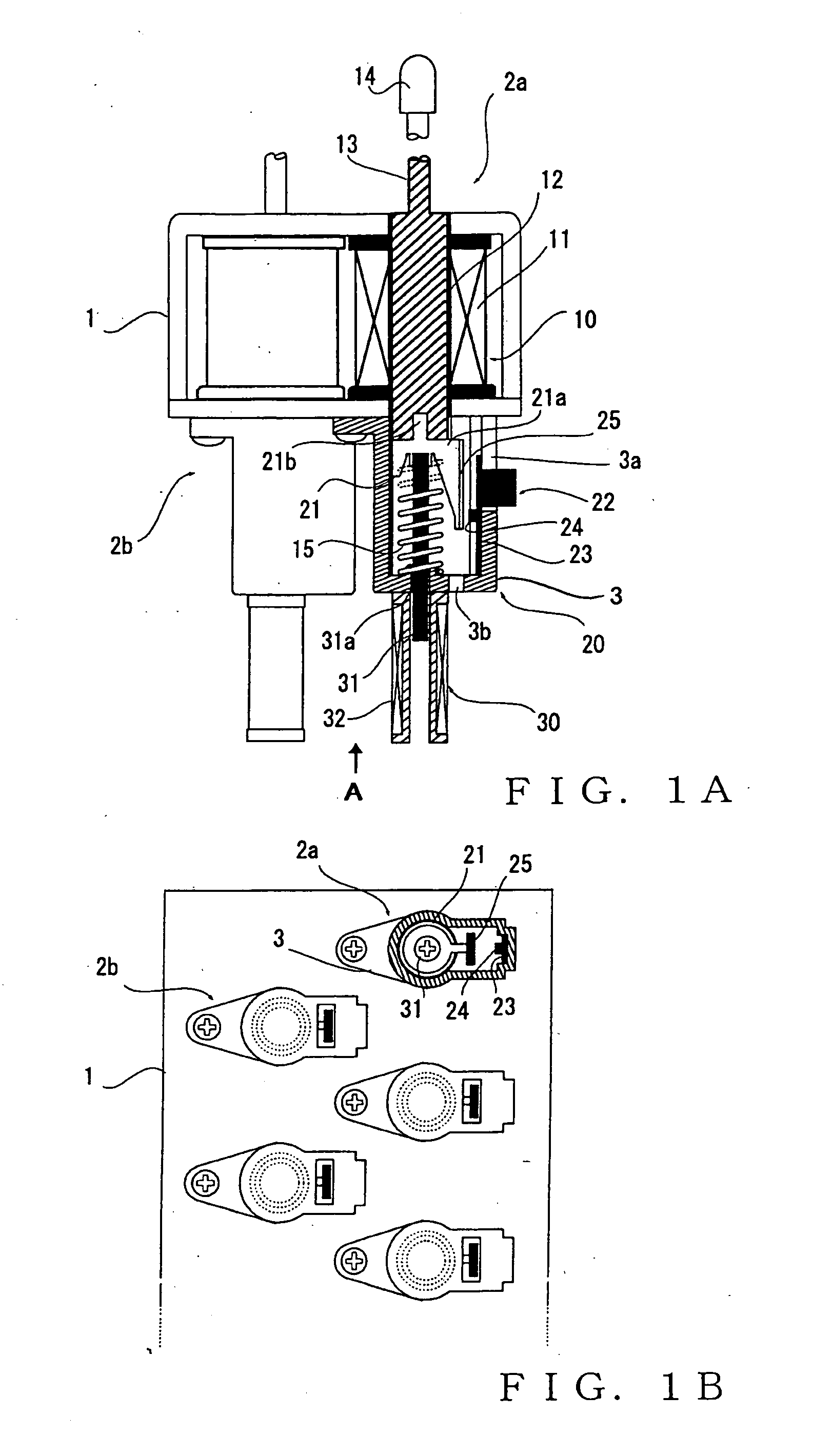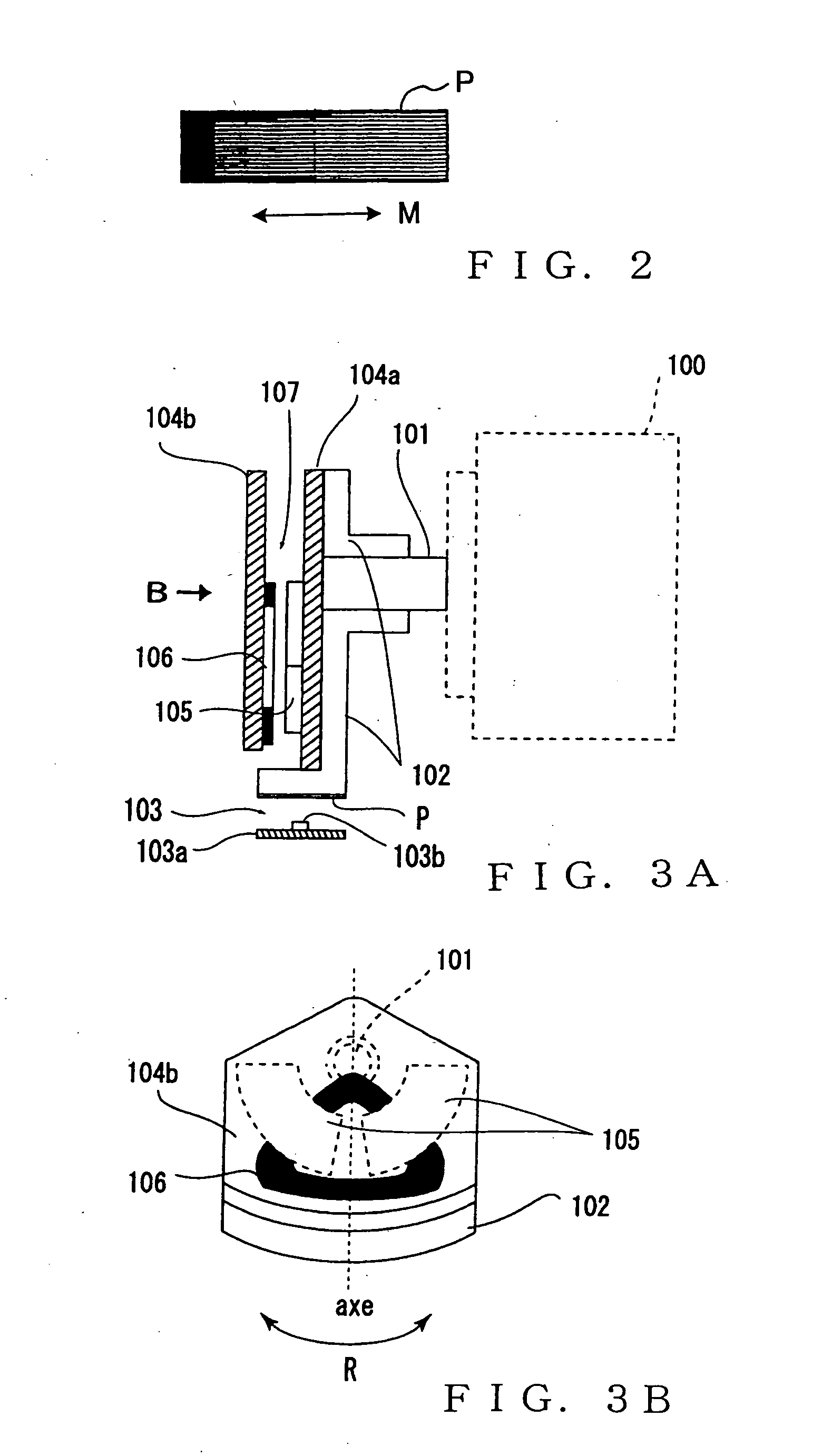Actuator unit for performance operator, keyboard musical instrument and actuator unit assembly
- Summary
- Abstract
- Description
- Claims
- Application Information
AI Technical Summary
Benefits of technology
Problems solved by technology
Method used
Image
Examples
first embodiment
[0022] First, a description will be made about an actuator unit which comprises a unit of a light-reflection type sensor and a velocity detector constructed separately from the light-reflection type sensor.
[0023]FIG. 1 is explanatory of an example construction of the first embodiment of the actuator unit, of which FIG. 1A is a partly-sectional side view of the actuator unit and FIG. 1B is a bottom end view of the actuator unit taken in a direction of arrow A of FIG. 1A. Specifically, FIG. 1 shows an actuator unit assembly having a plurality of the actuator units 2a, 2b, . . . held in place by a common (or same) yoke 1. The actuator units 2a, 2b, . . . provided, for example, in corresponding relation to keys of a keyboard musical instrument (not shown), such as a piano, and these actuator units 2a, 2b, . . . are used to impart a desired touch (i.e., reactive force / force sense) to key operation by a human player. The actuator units 2a, 2b, . . . are constructed identically, and in FIG...
second embodiment
[0041] The embodiment has so far been described above in relation to the case in which the actuator section 10 is of the type where the plunger 12 moves linearly. FIG. 3A is a view showing another structural example (i.e., second embodiment) of the actuator unit of the present invention where the sensors are constructed as a unit; more specifically, FIG. 3A is a sectional view explanatory of the actuator unit where a position sensor and velocity sensor are provided as a unit on an actuator that is driven to rotate (rotary actuator).
[0042] Rotary motor (i.e., rotary actuator) 100 causes a rotation base 102, coupled via a rotation shaft 101 to the motor 100, to rotate (swing) in two directions within a predetermined rotational angular range. The rotation base 102 has an optical density pattern (gray scale) P on its outer peripheral portion. The optical density pattern P is similar to that shown in FIG. 2 and provided to cover the predetermined rotational angular range within which the...
third embodiment
[0051]FIG. 5A is a view showing another structural example of the actuator unit provided with the light-reflection type sensor, and FIG. 5B is a schematic plan view taken in a direction of arrow C of FIG. 5A. In this example, a predetermined optical density pattern (gray scale), similar to the one shown in FIG. 2, is formed directly on a substantially entire peripheral surface of a bar 12a extending coaxially with and from the lower end of the plunger 12. The bar 12a is a cylindrical member formed of resin, such as PBT (Polybutylene Terephthalate resin) and having generally the same diameter as the plunger 12. Bobbin 12b, surrounding the plunger 12 and bar 12a, has an open window 12c in a predetermined position thereof that should oppose the sensor chip 24, and the sensor chip 24 is disposed on a surface of the sensor substrate 26 opposing the open window 12c. Because the optical density pattern is formed on the entire outer peripheral surface of the bar 12a, the pattern will never ...
PUM
 Login to View More
Login to View More Abstract
Description
Claims
Application Information
 Login to View More
Login to View More - R&D Engineer
- R&D Manager
- IP Professional
- Industry Leading Data Capabilities
- Powerful AI technology
- Patent DNA Extraction
Browse by: Latest US Patents, China's latest patents, Technical Efficacy Thesaurus, Application Domain, Technology Topic, Popular Technical Reports.
© 2024 PatSnap. All rights reserved.Legal|Privacy policy|Modern Slavery Act Transparency Statement|Sitemap|About US| Contact US: help@patsnap.com










